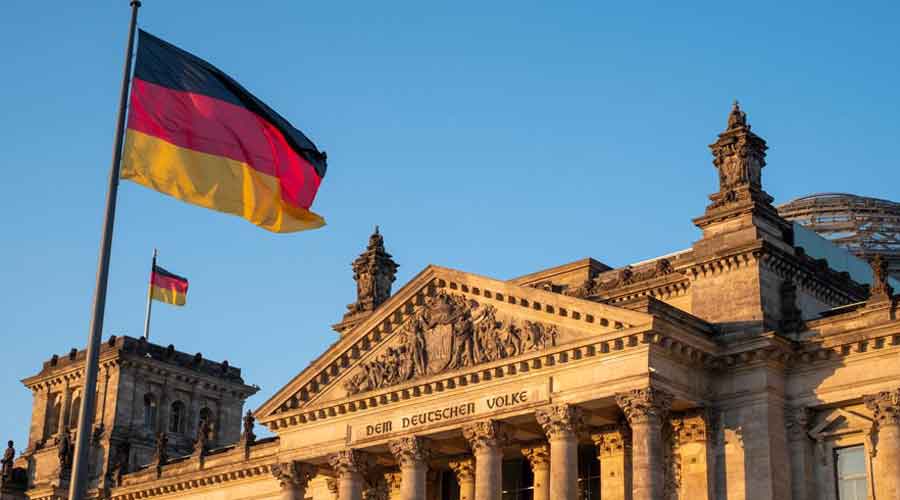Germany faces certain recession if already faltering Russian gas supplies stop completely, an industry body warned on Tuesday, as Italy said it would consider offering financial backing to help companies refill gas storage to avoid a deeper crisis in winter.
EU states from the Baltic Sea in the north to the Adriatic in the south have outlined measures to cope with a supply crisis after Russia’s invasion of Ukraine put energy at the heart of an economic battle between Moscow and the West.
The EU relied on Russia for as much as 40 per cent of its gas needs before the war — rising to 55 per cent for Germany — leaving a huge gap to fill in an already tight global gas market. Some countries have temporarily reversed plans to shut coal power plants in response.
Gas prices have hit record levels, driving a surge in inflation and adding to the challenges for policymakers trying to haul Europe back from an economic precipice.
Germany’s BDI industry association cut its economic growth forecast for 2022 on Tuesday to 1.5 per cent, revising it down from 3.5 per cent expected before the war began on February 24. It said a halt in Russian gas deliveries would make recession in Europe’s largest economy inevitable.
Russian gas is still being pumped via Ukraine but at a reduced rate and the Nord Stream 1 pipeline under the Baltic, a vital supply route to Germany, is working at just 40 per cent capacity, which Moscow says is because western sanctions are hindering repairs. Europe says this is a pretext to reduce flows.
The slowdown has hampered Europe’s efforts to refill storage facilities, now about 55 per cent full, to meet an EU-wide target of 80 per cent by October and 90 per cent by November, a level that would help see the bloc through winter if supplies were disrupted further.
Italian ecological transition minister Roberto Cingolani said Italy needed to accelerate its refilling efforts and Rome should consider how to help companies fund purchases of gas for storage.
An Italian government source said a state guarantee could be an option to lower the cost of financing. “Gas currently is so expensive that operators cannot put money into it,” Cingolani said.
The benchmark gas price for Europe was trading around 126 euros ($133) per megawatt hour (MWh) on Tuesday.
Italy, as well as others such as Austria, Denmark, Germany and the Netherlands, has activated the first early warning stage of its three-stage plan to cope with a gas supply crisis.











